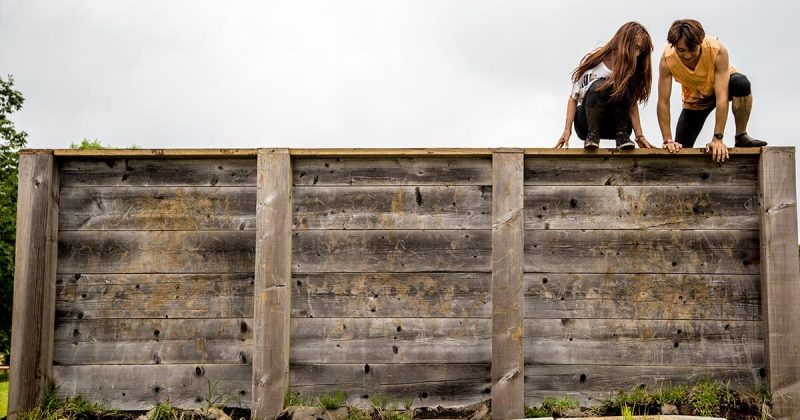Our military life experience – with the frequent moves, deployments and making family and home from new surroundings – provides us with many opportunities to raise healthy and safe children. We rise to challenges by turning them into advantages on a daily basis, and we’ve got great resources for support. If you’re part of a military family you may be giving me the skeptical stink-eye as you read this, but hang with me for a minute.
We are our children’s first teachers. What they grow up seeing, hearing and knowing as normal comes from our homes, expressions, interactions and lifestyle. Your children are growing up watching you meet challenges head on and then turn them into opportunities.
So, let’s make sure we use our military life experiences and resources to lend advantages to our children’s physical and mental health, as well as their safety.
Use your experience and military resources to teach your children about nutrition and exercise and practice it with them
- Take advantage of the military physical fitness requirements and teach your kids what you need to do to stay in shape. Work out together at home or at your installation’s fitness center and see how many reps your kids can do. Keep track of their reps on the refrigerator for motivation to try to improve.
- Use this Military OneSource article, “5210 Healthy Military Children” for a daily health guide that’s easy for kids to remember. Each day eat five or more fruits and veggies, have two or fewer hours of screen time, do one hour or more of physical activity and have 0 sugary drinks.
- Enjoy an outdoor adventure through Morale, Welfare and Recreation, or MWR. Join a team sport or look up the youth and teen programs for other fun physical activities.
Make exercise a fun part of life by wrapping it into a trip to the park. Find a park they enjoy and walk, jog, ride bikes, skateboard, etc. to the park, play and return. Show your children the importance of maintenance and prevention by keeping your family on a yearly schedule for health physicals, eye exams and biannual dental cleanings.
Mental and emotional health is as important as physical health
Every child deserves to feel safe and loved at home. Building strong family bonds provides that safety net for your children. You help your children develop coping skills and flexibility every time you prep for and go through a PCS or deployment. That is how you turn the moves and separations into healthy advantages — by helping them learn to problem solve through the challenges and find joy in the growth.
Turning challenges into advantages is what makes military families so resilient. Here are some ideas for you to try and some you may already be doing to increase your child’s mental and emotional health.
- Build in family bonding time before deployments. Combine teamwork with physical activity for fun memories: rake leaves (add in extra time for jumping into the piles of leaves), plant a flowerbed, or paint a room for a more permanent reminder of the fun.
- Team up one-on-one with each child to do chores. Kids tend to open up a bit more when working beside you and focusing on a task. Take these moments to listen. Guide them in problem solving challenges and calming any fears.
- Reverse trick-or-treat can help reduce some stress. When your spouse is deployed and you’re in single parent mode, reverse trick-or-treating (on Halloween or a modified version anytime) allows you to spread the candy joy while you walk (since you can’t be in two places at once). Let the kids help hand it out in between their doorbell runs.
When it’s PCS time for you children or for a new family near you, it’s the perfect opportunity to talk with your children about having empathy for others and treating them with respect
- Ask your children if they have any concerns about your move. They may be worried about making new friends or missing their current friends. Have your child think of things he or she can do to keep in touch with their current friends and what they can do to make new friends. With a little guidance from you, they’ll feel more prepared.
- Discuss how it feels to be the new kid. Being part of the military community means helping others in the same situation. Ask them to think of ways they can help others.
- Model the behavior you want to see in your children. Let them see you do random acts of kindness, and have them help you decide what to do and who to surprise.
- Look for ways to help other families mutually. My friends and I would help each other out when our spouses deployed. From hosting dinners where the kids played and we got to enjoy (somewhat) uninterrupted adult conversation, to watching each other’s kids so we could grocery shop without little hands “helping.” We also helped each other with home improvement projects since most of them require more than two hands to accomplish.
Military kids are more resilient, healthier and happier people because their “normal” includes meeting challenges and seeing them as opportunities. You may not even realize all the amazing things you are already doing for you and your family just by raising your children in the military community.


